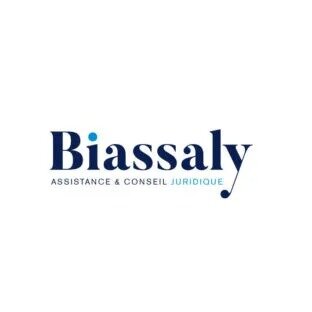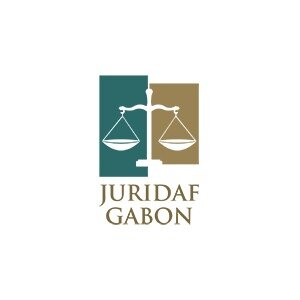Best Tax Increment Financing Lawyers in Gabon
Share your needs with us, get contacted by law firms.
Free. Takes 2 min.
Or refine your search by selecting a city:
List of the best lawyers in Gabon
About Tax Increment Financing Law in Gabon
Tax Increment Financing (TIF) in Gabon is a governmental financial tool used to encourage economic development and infrastructure improvement within designated areas. TIF is designed to spur investments by diverting future tax revenues resulting from an increase in property values, usually within a specific district, back into development projects. This financing strategy helps to cover the upfront costs of developments or improvements that are expected to generate increased taxable values over time. While TIF is widely used in many parts of the world, Gabon is emerging in its application, adapting international principles to local contexts.
Why You May Need a Lawyer
Engaging in projects involving Tax Increment Financing in Gabon can be legally complex for several reasons. A lawyer can help navigate the intricacies of TIF agreements, ensure compliance with local laws, and protect your interests throughout the process. Common situations where legal assistance may be needed include:
- Understanding the eligibility criteria and application process for TIF in Gabon.
- Negotiating and drafting TIF agreements with local authorities or developers.
- Ensuring compliance with specific local regulations and requirements.
- Resolving disputes that may arise during the implementation of TIF projects.
- Advising on tax implications and financial aspects related to TIF.
Local Laws Overview
Gabonese law regarding Tax Increment Financing is shaped by both national legislation and regional policies. Key aspects to be aware of include:
- Project Eligibility: TIF is generally available for projects that demonstrate potential for economic development and increased property values.
- Approval Process: Developers must usually gain approval from municipal authorities, which involves comprehensive project proposals and plans.
- Revenue Allocation: Details how future tax revenues will be allocated back into the project for infrastructure or improvement initiatives.
- Compliance: Developers and municipalities must adhere to specific regulations regarding environmental impact and zoning laws.
- Accountability and Reporting: Ongoing reporting is typically required to demonstrate the project's adherence to approved plans and anticipated economic impact.
Frequently Asked Questions
What is Tax Increment Financing?
Tax Increment Financing is a public financing method that uses future increases in property taxes to pay for urban development and infrastructure within a designated area.
Is TIF available throughout Gabon?
TIF is available in designated areas as outlined by local municipal authorities. These areas are often targeted for economic revitalization or infrastructure development.
Who can qualify for TIF?
Generally, projects led by developers, private companies, or partnerships between public and private entities that demonstrate potential for substantial economic and community benefit may qualify for TIF.
How do I apply for TIF?
The application process involves submitting a detailed proposal to the relevant municipal authority, showcasing the project's potential impacts and justifying the need for financing.
What are the risks associated with TIF?
Risks include financial mismanagement, failure to meet projected outcomes, changes in law, and possible disputes with stakeholders regarding project implementation.
How does TIF impact local taxes?
TIF doesn't increase local taxes but rather reallocates future tax revenues from increased property values towards the development project.
Can TIF be used for any type of project?
No, TIF is typically reserved for projects that can significantly boost local economic development and improve community infrastructure.
Are there local incentives for using TIF in Gabon?
Yes, local governments may offer incentives to attract developers to use TIF, especially in regions earmarked for redevelopment.
What roles do local governments play in TIF?
Local governments are responsible for designating TIF areas, approving projects, and ensuring compliance with legal and regulatory frameworks.
Can TIF be combined with other financing options?
Yes, TIF can often be part of a larger financing strategy, which may include private investments, grants, or other governmental financial incentives.
Additional Resources
For individuals seeking further information or legal advice on Tax Increment Financing, the following resources may be helpful:
- The Ministry of Economy and Finance in Gabon for regulations and guidelines.
- Local Chambers of Commerce for regional economic development insights.
- Law firms specializing in public finance or real estate development in Gabon.
- Development agencies within Gabon focused on infrastructure and urban growth.
Next Steps
If you are considering a project involving Tax Increment Financing in Gabon, it is advisable to consult with a legal professional experienced in this field. Begin by gathering relevant documentation and project plans to discuss with your lawyer, ensuring you understand both the opportunities and obligations TIF presents. Reach out to local governmental authorities early in the process to learn about specific requirements and available support. With appropriate planning and legal guidance, you can navigate the complexities of TIF effectively.
Lawzana helps you find the best lawyers and law firms in Gabon through a curated and pre-screened list of qualified legal professionals. Our platform offers rankings and detailed profiles of attorneys and law firms, allowing you to compare based on practice areas, including Tax Increment Financing, experience, and client feedback.
Each profile includes a description of the firm's areas of practice, client reviews, team members and partners, year of establishment, spoken languages, office locations, contact information, social media presence, and any published articles or resources. Most firms on our platform speak English and are experienced in both local and international legal matters.
Get a quote from top-rated law firms in Gabon — quickly, securely, and without unnecessary hassle.
Disclaimer:
The information provided on this page is for general informational purposes only and does not constitute legal advice. While we strive to ensure the accuracy and relevance of the content, legal information may change over time, and interpretations of the law can vary. You should always consult with a qualified legal professional for advice specific to your situation.
We disclaim all liability for actions taken or not taken based on the content of this page. If you believe any information is incorrect or outdated, please contact us, and we will review and update it where appropriate.
Browse tax increment financing law firms by city in Gabon
Refine your search by selecting a city.










